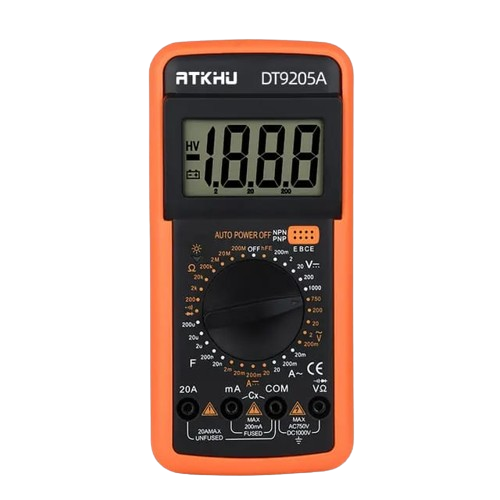Here are some key features and functions of a lab multimeter:
Voltage Measurement: Multimeters can measure direct current (DC) voltage, alternating current (AC) voltage, and voltage fluctuations. They are used to test batteries, circuits, power supplies, and electrical systems.
Current Measurement: Multimeters can measure DC and AC currents flowing through circuits and components. This helps in troubleshooting and verifying proper current flow.
Resistance Measurement: Multimeters can measure resistance in ohms, which is useful for testing the continuity of wires, resistors, and electronic components.
Capacitance Measurement: Some multimeters have the capability to measure capacitance in farads, which is helpful in testing capacitors and electronic circuits involving capacitance.
Frequency Measurement: Advanced multimeters can measure frequency in hertz (Hz), which is important for analyzing signals, waveforms, and electrical systems operating at specific frequencies.
Diode and Continuity Testing: Multimeters often include diode testing and continuity testing features, allowing users to check for diode functionality and verify circuit connections.
Data Logging and Recording: Some modern multimeters come with data logging capabilities, allowing users to record measurements over time or during specific events for analysis and troubleshooting.
When using a lab multimeter, it’s important to follow safety precautions, such as selecting the appropriate measurement range, ensuring proper probe connections, and avoiding measurements in high-voltage or high-current situations without proper training and precautions.
-40%
Lab Multimeter in Kenya.
Original price was: KSh2,000.KSh1,200Current price is: KSh1,200.
A lab multimeter, short for “multifunction meter” or “multimeter,” is a versatile instrument used to measure multiple electrical properties. It’s an essential tool in electronics, electrical engineering, physics, and other related fields.




There are no reviews yet.